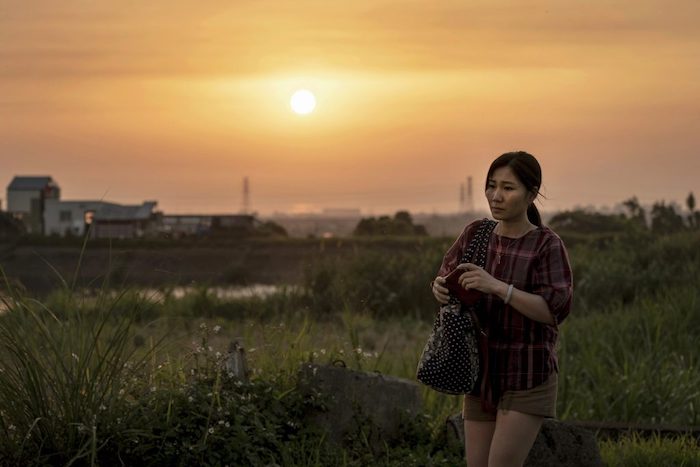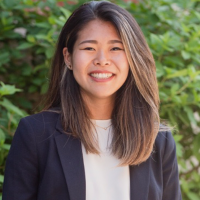Synopsis
Days Before the Millennium (徘徊年代) follows the story of two Vietnamese women in Taiwan, before and after the millennium, whose stories of integration and search for a better life illustrate the complex ways people experience immigration. The first part of the film is set in a small Taiwanese village in the 1990s and depicts the life of Van Tue, a young Vietnamese wife who suffers in silence while living with her strict mother-in-law and impotent husband. Flash forward to 2016, when a mysterious young professional woman, Bui, lands a job with a private investigation firm that helps resolve domestic disputes for international families.
A tale of foil characters
Days Before the Millennium begins in a modest Taiwanese home, as the audience is introduced to Van Tue, a young Vietnamese woman who came to the “land of riches” in hopes of a better life. Her mother-in-law, like many others in Taiwan, hired a broker to find a foreign bride for her son, Ming, who works in construction. As the years progress, problems in the family dynamics are slowly revealed, including criticisms of Van Tue’s lack of skill as a housewife, the noticeably empty baby cot in the room, Ming’s habit of stealing from his friends and workplace, and sounds of violence coming from the home. With some reluctance, Van Tue leaves the house and begins to rebuild a life with new friends, a job, an apartment, and ultimately a national I.D., which bestows her the legal right to remain in Taiwan without a husband.

As the film jumps ahead to 2016, the cinematic style takes a turn from a wide-screen vintage look akin to the classic old, slow cinema to a clean and crisp older standard 4:3 frame. Bui, an educated Vietnamese woman married to a Taiwanese man, walks into a job interview for a private investigation firm. Passionate about helping other immigrant women deal with marital problems in a foreign land, Bui draws inspiration from Van Tue, a founder of a successful new immigrant dance troupe. Throughout the second part of the film, actors from the past continue to re-appear, but playing new roles, which may confuse the audience at times, but the convergence of the two stories alludes to the similarities in issues faced by immigrants in Taiwan. And despite the changing times, the two women share the struggle of integration and acceptance as the “other” in the land of riches.
Intersecting themes of immigration, gender, and climate change
The core theme of immigration is tied into the gendered experiences of being an immigrant woman, laden with domestic violence, a fixation on childbearing as sustaining familial bonds, and the bureaucratic discourse around women needing ‘protection.’ The movie spans the years 1996 to 2016, which is significant to the plot seeped with nuances of political destabilization, growing foreign investments, and economic development in both Taiwan and Vietnam.
Another important theme that remains central to the plot is climate change and natural disasters. Mentions of Typhoon Winnie ravaging parts of Taiwan in 1997; a devastating earthquake that struck the town of Jiji in 1999; and the latter part of the film taking place in 2016 against a backdrop of the Formosa steel plant’s toxic waste spill, which caused a massive die-off of fish in Vietnam, underscore how human destinies are intrinsically connected to disasters and a changing climate. The link between immigration and climate change also becomes visible when Taiwanese locals discuss immigrants as “pollutants” in one of the film’s earlier scenes. A certain calmness sets the film’s tone, with director Chang Teng-Yuan carefully asserting how citizenship and belonging are often defined by migration patterns, especially those enforced by unforeseen environmental calamities.
The film could have been shortened somewhat with alternative stylistic choices and more coherent weaving of frames, but the message remains relevant – and transnational: Immigration is at the heart of modern nation-states, a message that resonates with many Canadians. The intersection of immigration, gender, economic development, and climate change is one that makes this film especially relevant and captures the current zeitgeist.
About the Vancouver Taiwanese Film Festival
The Vancouver Taiwanese Film Festival (TWFF) is an annual non-profit art and culture initiative started in 2007. It has been well-received by Metro Vancouver audiences over the years and has become the largest film festival focusing on Taiwanese cinema in North America. Over the past 16 years, TWFF has presented more than 100 Taiwanese films and invited many filmmakers and directors to Vancouver, supporting multiculturalism in Canada and building a bridge connecting the art of Taiwanese film with Canadian audiences.
APF Canada was provided complimentary review tickets for TWFF as part of its mission to promote mutual awareness and understanding of Asian cultures.



